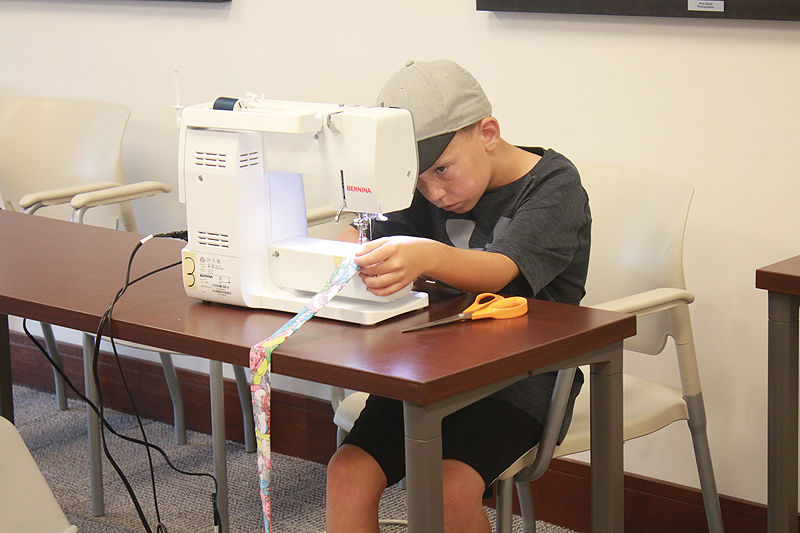Many foster children don’t have a lot of possessions, but they shouldn’t have to feel even poorer by carrying their few meager items in plastic garbage bags.
That’s the philosophy behind a new program beginning this summer by the Eastern Region Quality Initiative Committee. In support of the Division of Child and Family Services, they have begun to collect donations to make transition bags for children in foster care.
The committee was created over 10 years ago to support and further the mission of DCFS.
“Our role is to kind of help… further their mission, help things along, make recommendations for improvement but also help support them,” said Kobi Prettyman, a member of the committee.
The committee making the transition bags for children in foster care to use when moving from their parents’ home, from one foster home to another, or transitioning out of foster care into their own home.
Layne Miller, board chair of the Eastern Region Quality Initiative Committee, and his wife have been foster parents for over 20 years. “It’s not unusual, in fact it’s quite common, for new foster kids to show up to our house and they have black garbage bags with their whole life in them. And that’s just not right,” explained Miller.
With the new bags, which will measure about two feet by three feet, children and teens in foster care will be able to move their personal items when necessary without using a trash bag.
“I can just imagine how I’d feel if somebody said ‘Okay you have to move. Here’s a garbage bag, put all your stuff in here,’” said Miller.
The committee and other groups have collected bags in the past as part of a separate program, but these bags are different. Large enough to hold all of a child’s clothes and personal items, a backpack or a small duffel bag just will not work.
“We’re making bigger bags that can hold all their clothes when they have to move… a lot of people want to donate a bag and fill it full of stuff and we appreciate that and there’s a place for that, but this is a different purpose than that,” said Prettyman, explaining the difference between the programs.
The eastern region has over 300 kids in foster care, with some possibly needing more than one bag to move, so the committee has set a goal of 500 bags to start. The project will be ongoing, as children will keep the bags they use.
While the transition bag program has already received a great response from the community, with schools offering volunteers to use sewing machines and community members donating supplies and fabric, as well as time, more help is welcomed. If you are interested in helping, contact Layne Miller at 650-4326 or Kobi Prettyman at 650-4114.
Everything they own fits in a plastic garbage bag

A volunteer concentrates on stitching a strap for a transition bag.
